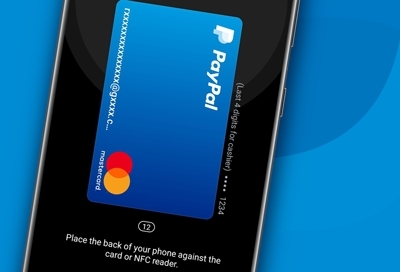11 paypal transfer questions (quick answers!)
Are you new to PayPal and have questions about transferring money? Or maybe you’ve been using PayPal for a while but still have some uncertainties about the process? Well, you’re not alone. Many people have questions when it comes to transferring money through PayPal.
PayPal has become a popular way to send and receive money online. It’s a convenient and secure method that allows you to transfer funds to friends, family, or clients with ease. However, with any new technology, there are always questions and concerns.
In this article, we will provide quick answers to 11 of the most common PayPal transfer questions. Whether you’re wondering how long it takes for a transfer to go through or if there are any fees involved, we’ve got you covered. So, let’s get started and clear up any uncertainties you may have about PayPal transfers.
PayPal has revolutionized the way we send and receive money online. It has become a popular choice for those who prefer online transactions due to its ease of use and security. However, many people still have questions about how to use PayPal’s transfer feature effectively.
In this article, we will provide you with quick answers to the most frequently asked questions about PayPal transfers. Whether you are a seasoned PayPal user or a beginner, these answers will help you understand the transfer process and make it easier for you to use PayPal for your financial transactions. So, let’s dive in and get your PayPal transfer questions answered!
What is PayPal transfer?
PayPal transfer is a secure and convenient way to send money online. It allows you to instantly transfer funds between accounts or individuals with ease. All you need is the recipient’s email address and you can quickly send money directly from your bank account, credit card, or PayPal balance.

How long does it take for a PayPal transfer to go through?
The time it takes for a PayPal transfer to go through depends on where the money is coming from and where it’s going. Usually, transfers between two PayPal accounts take only a few minutes to complete. If you are transferring funds from your bank account or credit card, it may take up to three days for the funds to arrive in the recipient’s account.
Are there any fees associated with PayPal transfers?
Yes , there may be fees associated with PayPal transfers. Depending on the type of transfer you are making, you may be charged a fee by PayPal or your bank. For most transfers, PayPal charges a flat fee of 2.9% plus $0.30 per transaction. If the recipient is located in another country, additional fees may apply.
Are there any limits on the amount I can transfer?
Yes, PayPal has limits on the amount of money you can transfer. For unverified accounts, the limit is $500 per transaction and $4,000 per month. Once you have verified your account with PayPal, you may be eligible for higher limits. You can check your account’s limits by logging into your PayPal account and navigating to the “My Money” page.
These are just a few of the most common questions about PayPal transfers. If you still have unanswered questions, be sure to visit PayPal’s website for more detailed information.
When you transfer money through PayPal, it is important to remember that the recipient must have a verified PayPal account in order to receive the funds. If they do not have an account, they will need to create one before they can accept your payment. Additionally, if you are sending money internationally, there may be additional fees and restrictions that apply.
It is also important to remember that PayPal transfers are not covered by the same consumer protection laws as bank transfers. If you need to dispute a payment, you may need to contact PayPal directly.
When using PayPal transfers, it is important to understand the terms and conditions of your account. The fees for transactions can vary based on the type of transfer you are making and the recipient’s country. Additionally, if you are sending money across international borders, there may be additional restrictions or compliance requirements that apply. It is also important to make sure the recipient has a verified PayPal account in order to receive the payment.
PayPal transfers are a secure and convenient way to send money online. By understanding the fees, limits, and restrictions associated with PayPal transfers, you can ensure that your payments are safe and successful.
How Much Does PayPal Charge for Transfers?
PayPal charges a flat fee of 2.9% plus $0.30 per transaction for most transfers, although different fees may apply in certain circumstances. For example, if you are sending money to someone in another country, additional fees may be required depending on the recipient’s location.
Additionally, PayPal may offer promotional rates or discounts on certain types of transfers. It is important to check the fees associated with each type of payment before completing the transaction.
Are there any restrictions on PayPal transfers?
Yes, PayPal has a number of restrictions in place to protect users. For example, if you are sending money internationally, the recipient’s country may have additional compliance requirements that must be met. Additionally, PayPal imposes limits on the amount of money you can send and receive at one time.
These limits vary depending on your account status, so it is important to check your account’s limits before making a payment.
Do PayPal Transfers Go Through Instantly?
PayPal transfers usually take a few minutes to process, although the exact time frame may vary depending on the type of transfer.
For instance, if you are making an international payment, it may take longer due to additional compliance requirements and other factors. Generally, most transfers will be completed within a few minutes. Additionally, PayPal offers mobile and web-based services that allow you to send money quickly and securely.
When making a PayPal transfer, it is important to understand the potential risks associated with sending money online. In some cases, the funds may be subject to fraud or identity theft if not properly protected. Additionally, if you send money to someone who does not have a verified PayPal account, they may never receive the payment.
To ensure that your transfers are successful and safe, it is important to understand the fees, limits, and restrictions associated with PayPal transfers. Additionally, always make sure that the recipient has a verified PayPal account before sending any funds.
Is There a Limit on PayPal Transfers?
Yes, PayPal imposes limits on the amount of money you can send and receive at one time. These limits vary based on your account status, so it is important to check your account’s limits before making a payment.
Additionally, for international transfers, the recipient’s country may impose its own restrictions on the amount of money that can be received at one time.
Are there any fees associated with PayPal transfers?
Yes, PayPal charges a fee for most types of payments. For domestic transfers, the fee is typically 2.9% plus $0.30 per transaction. However, when sending money internationally, additional fees may be required depending on the recipient’s location.
Additionally, PayPal may offer promotional rates or discounts on certain types of transfers. It is important to check the fees associated with each type of payment before completing the transaction.
Why do PayPal bank transfers take so long?
PayPal bank transfers can take longer than other payment methods for a few different reasons. Firstly, when sending money internationally, the transfer must comply with additional regulations that can slow down the process.
Additionally, PayPal may need to verify your identity or the recipient’s identity before processing the transaction. This added layer of security can also take some time. Finally, if you are transferring funds from your bank account or credit card, this can also take some time as the funds will need to be processed by PayPal.
What Banks Accept PayPal transfers?
Most major banks accept PayPal transfers, including Bank of America, Wells Fargo, and Chase. Additionally, many smaller regional banks and credit unions also offer support for PayPal transfers.
To find out if your bank or credit union accepts PayPal transfers, contact your financial institution directly or use the Find a Financial Institution feature on the PayPal website.
It is important to note that not all banks may offer the same features or services when it comes to PayPal transfers. For example, some banks may only allow transfers from a PayPal account while others may offer additional features such as the ability to send and request money using your bank’s mobile app.
Can you set up automatic transfers in PayPal?
Yes, PayPal allows you to set up automatic transfers for recurring payments. This feature can be used to pay utilities, subscription services, and other regularly scheduled bills. It is important to note that this feature is only available for domestic transfers and may not be available in certain countries.
When setting up an automatic transfer, you will need to provide information such as the frequency of payments, the amount of money to be transferred, and the recipient’s information. PayPal will then process the transfer using the bank account or credit card linked to your PayPal account.
Are PayPal international transfers instant?
No, PayPal international transfers are not instant. It can take several days for the money to be transferred depending on the country of the recipient and the payment method chosen. Additionally, some countries may require additional verification steps which can further delay the process.

When sending an international transfer, it is important to factor in any additional delays due to currency exchange rates or other restrictions. If you need your money to arrive quickly, you may need to use an alternative payment method such as a wire transfer.